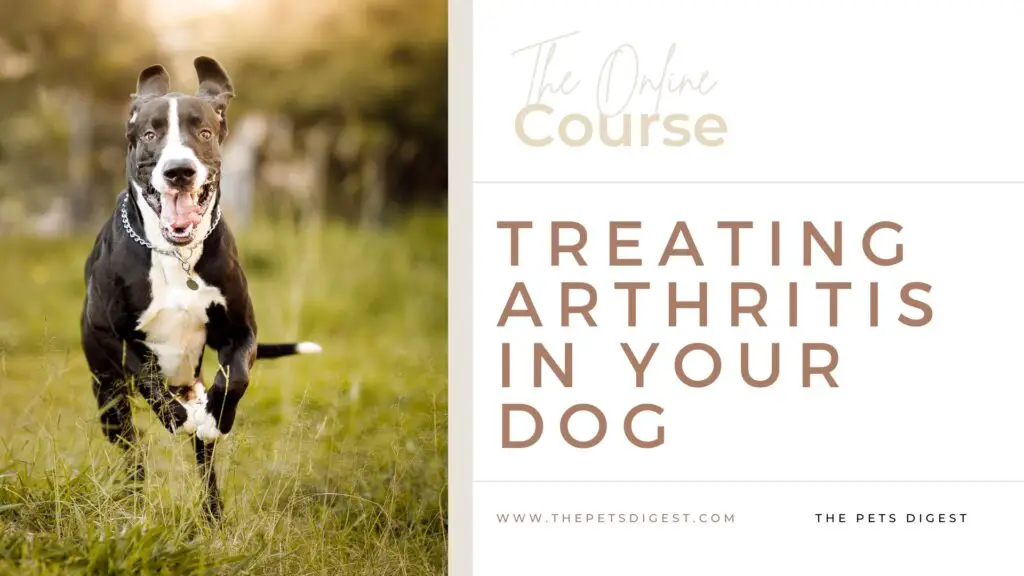There are many factors that can contribute to dogs acquiring arthritis including size, age, and sex. However, did you know there are things you can do to help your dog decrease their chances of acquiring arthritis like changing their diet or including supplements?

1. Size
The larger the dog, the more prone they are to developing osteoarthritis. This is because they are heavier which puts a lot more pressure on the joints as they maneuver through the world.
How food can help: Learning to feed your dog properly as a puppy can significantly alter their predilection to develop osteoarthritis.
2. Age
While dogs of any age can develop arthritis, age can affect the onset of osteoarthritis in dogs as well. Osteoarthritis can be found in approximately 20% of dogs as puppies but that percentage increases to 80% in senior dogs or dogs over the age of 8.
3. Weight
Overweight dogs are about two times more likely to develop osteoarthritis. Similar to large breed dogs, the excess weight places more pressure on the joints which means more wear and tear.
How food can help: Feeding your dog to keep them at a healthy weight will decrease their chances of acquiring osteoarthritis
4. Joint abnormalities
Abmornal confirmation of the joints like in elbow and hip dysplasia can often be seen in young puppies.
This issue causes the joints to join improperly and can cause subsequent unnatural bone growth.
There are some dogs like German Shepherds that get dysplasias a lot more than others, if you want to read more about breeds of dogs that are more prone to dysplasias and osteoarthritis read our latest article here.
How food can help: First ensure that your dog has the proper treatment for their issue and you can ask your dog about giving your dog supplements with their food. To read our article about feeding your dog joint support supplements click here.
5. Injuries
In some cases dogs can develop osteoarthritis after an injury, this can even cause early-onset arthritis.
It is usually a result of torn cartilage or other ligaments. Injury can sometimes be avoided by warming your dog up or cooling them off properly before and after exercise.

7. Tick bites
Certain tick species can carry Lyme disease, Ehrlichiosis, or Rocky Mountain Spotted Fever. All of these can cause arthritis.
There are simple snap tests that your veterinarian can run to check for Lyme and Ehrlichiosis.
8. Vitamin Deficiency
There has been a study where vitamin D was shown in many dogs that suffered from osteoarthritis.
How food can help: Ensure your dog is eating a high-quality diet or that you are supplementing with vitamins if needed per your vet
9. Genetics
Although environment plays a big part in a dog acquiring osteoarthritis, genetics is also a major factor. There are certain breeds that are a lot more prone to suffering from osteoarthritis including Dobermans, German Shepherds, and Great Danes. To read about ten more breeds that are prone to getting arthritis, read our article here.
10. Sex
While both female and male dogs can get osteoarthritis, it was found that male dogs are 1.2 times more likely to develop the disease.
11. Pedigree
While more research needs to be done as some studies conflict with others, a recent study showed that purebred dogs were more prone to acquiring arthritis. But there are other studies that state the opposite.
12. Insurance status
Surprisingly (or maybe not so surprising when factoring in the cost of diagnosis and treatment) it was shown that pet owners that had insurance for their dogs were also a significant factor in diagnosing arthritis.
Insured dogs were diagnosed at twice the rate of non-insured pets.


























































































































